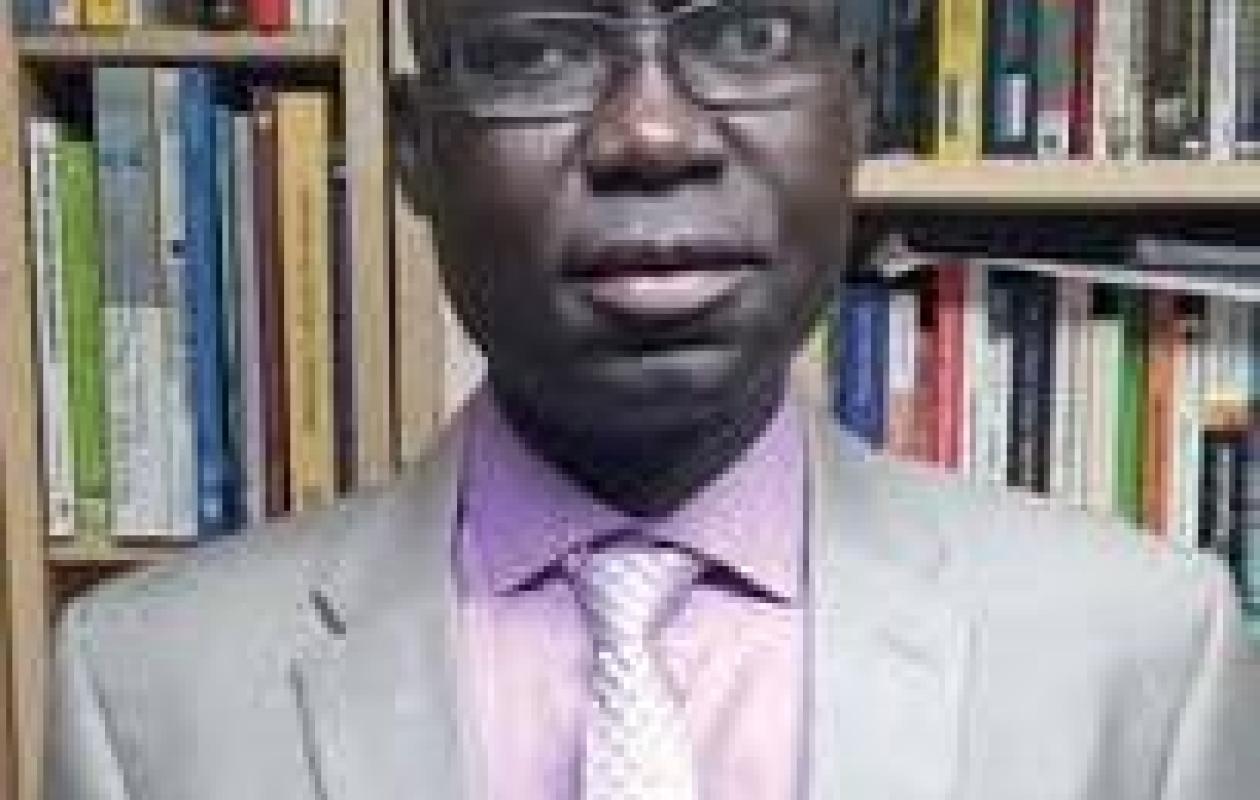
« Sortir de l’ombre : comprendre la “dette cachée” et pourquoi la transparence actuelle est une chance pour le Sénégal » (Par Pr Mamadou Vieux Lamine Sane)
In Senegal, the debate over "hidden debt" has invaded the public arena. Many see it as a political shock; above all, it should be seen as a historic opportunity: to close the parenthesis of incomplete accounting, to raise our standards of transparency, and to restore trust between the State, citizens, and partners. The facts are stubborn: through audits and reconciliation exercises, the authorities and international financial institutions have recognized that significant public commitments had not been correctly reported previously, forcing a substantial revision of the debt stock. The important thing now is not to perpetuate the witch hunt, but to explain what happened, to document the ongoing response, and to indicate why this clarification, led by the current government, is healthy for the Senegalese economy and democracy.
1) First, the facts: what are we talking about when we talk about “hidden debt”?
In modern public accounting, debt is not limited to direct Treasury borrowing. It includes contingent liabilities (guarantees), arrears, commitments made by public enterprises, sometimes consolidated by the State, and off-balance sheet financing. This is precisely where the problem lies: some of the commitments made in previous years were underreported or poorly allocated, and the central government's debt stock had to be revised upwards following an external audit and reconciliation exercise (Forvis Mazars), an exercise that the IMF has endorsed in its recent communications. The institution cited "previously undisclosed liabilities" and debt levels higher than previously published figures, leading to a recalculation of the public finance trajectory and discussions on a new program framework with Senegal.
2) Why is this revision, paradoxically, good news?
Because we only treat what we correctly name. Official recognition of the true scope of the debt is not an admission of the country's weakness; it is the starting point for more mature governance of public finances. On the one hand, it restores Senegal's statistical credibility, a sine qua non condition for negotiating sustainable financing, rescheduling deadlines, or mobilizing budgetary support. On the other hand, it restores order to the chain of responsibilities: who decides on a commitment? who records it? who consolidates it? who reports on it? On these four issues, the current government has chosen to take a clear approach : independent audit, publication of findings, dialogue with the IMF and partners, and a roadmap for reforms in budget reporting, management of public enterprises, and data integrity. The signals sent by the IMF in recent months—resumption of discussions with a view to a new program, emphasis on budget transparency—point in this direction.
3) Let's put an end to the false debates: structural heritage, not national inevitability
There is a strong temptation to reduce this sequence to a battle of narratives. Some deny the very existence of hidden debt; others overstate the issue with amounts beyond any control. Seriousness demands something else: trusting audited documents and the institutions that have attested to it. International analyses converge: Senegal discovered in 2024–2025 a significant gap between declared and real debt, linked in part to commitments consolidated after the fact and to public enterprises. The useful debate is therefore not "is there hidden debt?" but "how can we prevent this from happening again?"; not "who won the narrative?" but "what warning system should we put in place?" This is exactly the line adopted today: strengthening internal control, improving the governance of public enterprises, integrating quasi-fiscal commitments into a credible debt sustainability framework , and publishing regular reports that are readable by Parliament and the public.
4) What the current government is doing – concretely –
Four projects are underway and deserve to be supported by the entire political class:
(i) Transparency and integrity of data. Continuation of audits, reconciliation of figures and publication of revised stocks, step validated by IMF teams.
(ii) Budgetary discipline. Closer link between multi-annual programming (MTEF) and infra-annual execution, ceilings by programme, placing conditions on certain commitments.
(iii) Governance of public enterprises. Requirement of audited financial statements, debt ceilings, monitoring of guarantees, gradual integration into consolidated debt, and review of cross-subsidies/implicit subsidies (energy, transport).
(iv) Democratic accountability. More accessible performance reports, parliamentary debates based on standard indicators, and openness to social auditing (media, civil society) within a peaceful institutional framework. These guidelines are at the heart of discussions with the IMF and partners, who explicitly welcome the progress in reporting and transparency.
5) Why this protects growth and social spending
The major risk, in the event of persistent opacity, is the risk premium that the markets apply to the country: higher borrowing costs, reduced access to financing, pressure on the exchange rate, and, ultimately, painful trade-offs on social spending. Statistical consolidation, even if unpleasant in the short term, is protective in the medium term: it allows for debt re-profiling, adjustment of the issuance schedule, optimization of the concessional portion, and preservation of key areas (education, health, social protection). It is also the condition for absorbing shocks—energy prices, agricultural seasonality—without losing sight of long-term ambition. The ongoing discussions with the IMF, following the freeze period that occurred following the "misreporting," are precisely part of this logic of returning to a credible macro-budgetary anchor .
6) A word on public pedagogy
The battle for trust won't be won with Excel spreadsheets alone. Three political gestures matter:
.Speak truth : simply explain the difference between budget debt, consolidated debts of public enterprises, guarantees and arrears; say what has been discovered, what has been corrected and what remains to be done.
Ritualize accountability : publish quarterly summary reports, comparable over time, that journalists, deputies and citizens can follow; hold regular budget press conferences.
Protect equity : combine the consolidation with social and educational safeguards, by better targeting subsidies and preserving programs with a strong learning effect (reading/numeracy, canteens, targeted scholarships).
This pedagogy is also encouraged by international assessments of fiscal transparency , which underline the importance of publishing audits and opening budgetary data to the public.
7) The best defense: do better, now
Defending current action is not about whitewashing the past, but about demonstrating that we are learning from this sequence: audit, correct, publish, reform. The government has chosen this path of accountability. Citizens must demand it of all future governments, whoever they may be. Because a simple truth is clear: the most dangerous debt is the one we don't see . By revealing it, mapping it, and managing it in the open, Senegal is giving itself the means to protect its financial sovereignty, secure social investment, and direct national savings toward productivity rather than doubt.
To conclude: this debate is not between patriots and detractors; it distinguishes between cultures of governance. Ours must prefer proof to myth , prevention to denial , accountability to opacity . By accepting the truth of the figures and correcting the rules of the game, Senegal is making a demanding and salutary choice. This is the choice that the current government is implementing. Our collective responsibility is to encourage it to do so, so that the next controversy over debt simply no longer has any reason to exist .
Professor Mamadou Vieux Lamine Sane, Ph.D. in Educational Sciences
Graduate of the National School of Public Administration of Quebec
(ENAP-Montreal)
